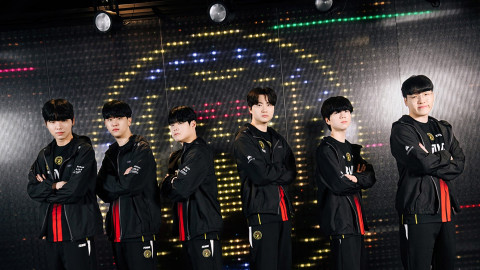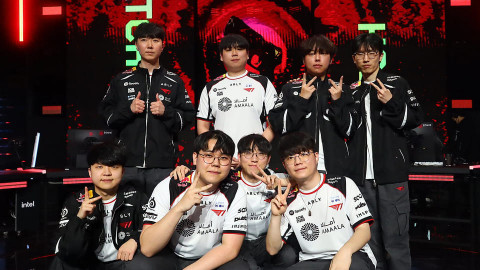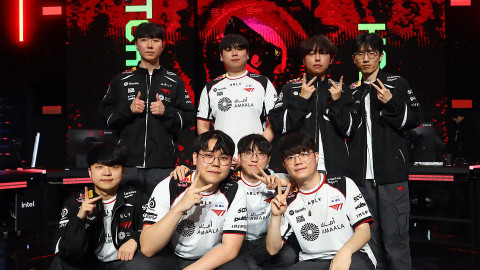
Inven Global recently had the honor of speaking with renowned video game designer, professor, author, and CEO, Jesse Schell. He perhaps is best known for writing The Art of Game Design, one of the most influential books ever published on the subject.
How did your major in information technology lead to work in the video game industry?
I've always been interested in videogames. When I got my degree in Information Networking, I wrote my Masters Thesis on how to create server architectures for Massively Multiplayer VR games, which, in 1993, was a very futuristic idea! My work on VR in graduate school led to me joining the Disney VR Studio in 1995, which was really my entry into the industry.
The Art of Game Design is considered a monumental book in the industry. What prompted you to write the it, what did you hope to achieve, and how did you come up with “lenses”?
The book was something I'd been thinking about a long time. I'd been teaching a game design course, and was given a chance to turn it into book form.
Many experienced game designers warned me it couldn't be done. "You can't write a good book about game design, because any advice you give will be right for some games, and wrong for others." But then it occurred to me: questions can't be wrong. And this is why it is a book of "lenses" - each of the 113 lenses is a different point of view, a different set of questions you should ask yourself about your game.
Questions range from questions about process, to game mechanics, to story, to interface, even to your team and motivations. Ultimately, good game design happens by considering your game from as many points of view as possible.
Some people use the book as a collection of references, while others read from start to finish. Who was your target audience? How should they read it?
I tried very hard to make the book very accessible. Ideally, I wanted it to serve as both an introduction for new game designers, and a reference for more advanced designers. So it's designed to work for both - you are welcome to read it however you like!

Could you offer us a short introduction to Schell Games?
Schell Games is a team of one hundred game developers in Pittsburgh, Pennsylvania. We create an unusually wide variety of games, from web, to mobile, to interactive theme park and museum installations, to interactive toys and virtual reality. At the moment, virtual reality and augmented reality are a big focus for us, comprising 80% of the projects we are working on.
As the company's head, what projects are you working on?
As we grow, my work shifts from focusing on the games themselves to focusing on making sure the project leads at Schell Games are excellent directors, designers, and leaders. My creative work is often about projects that haven't started yet -- which means that right now I'm working a lot on concepts involving social VR, such as a VR MMORPG.
Could we expect to see some of Schell Games’ projects this year?
Yes! We are launching several projects before the end of 2017: the "Happy Atoms" augmented reality interactive toy, "Domino World," an AR game for Google Tango phones, "Frostbound" for Daydream VR, and our most anticipated title, "I Expect You To Die" for the Oculus Rift, which releases on December 6, and on other platforms afterwards.
When will the general public experience VR/AR gaming? How much of an impact will it make?
VR is going to take the videogame world by storm. The experiences are so intense, so immersive, and so social. There will be a huge following for these powerful games. This Christmas will be when it all really comes into the market. Between Oculus Touch, PSVR, Vive, and Daydream, there will be a lot of amazing content out there! AR will be a bit farther off, but it too will be making its mark within the next couple years.
What can ordinary gamers do to prepare themselves for VR?
Traditional gamers are going to have to decide if VR is for them, and if so, what kind of VR. Do you like games that involve your whole body? Connecting with other players where your avatars can make real eye contact? RPGs where the characters look and feel like they are real people right next to you? Relaxing puzzle games that can immerse you for hours at a time?
Developers and hardware manufacturers are all experimenting right now; players will need to experiment, too, to figure out how they want VR games to fit into their lives.

Your speech at the 2010 DICE Summit - "Beyond Facebook" - inspired many by touching upon the gamification of everyday life. What did you hope to achieve with the lecture?
I wanted people to understand that game design isn't simply about amusement, but also about the nature of human motivation. At the time, people were just discovering how this power could be used to get people to pay for games in new ways. I wanted to get people thinking more deeply about the ways that gameplay structures could motivate players to improve their lives.
Since 2010, much of what I was talking about has come to pass. Fitness trackers are now used by millions, the bluetooth toothbrush is a reality, and China is creating the Sesame Credit social credit system, which makes a game out of patriotism. More and more, we are going to see systems use game-like structures to influence our behavior, for good or bad.
Traditional media often portrays videogames in a negative light, usually with claims of their causing violence. What can we do to change this perception?
Many games indeed are overflowing with violent content. Creating an experience where the best solution to your problems is shooting as many people as you can, and making it a cultural norm we give to children, is questionable at best. We can change that perception by developing games that have broader themes than "exterminate the people who don't look like me."
Are there any projects from other studios you are excited about?
I loved Budget Cuts by Neat Corporation, and I'm eager to see what they will do next. Turbo Button is another studio that has impressed me mightily - their Adventure Time VR game is way ahead of its time.
Any last words for all the developers and gamers out there?
It is an exciting time for videogames - a time of unprecedented invention and experimentation. For anyone thinking about creating VR and AR games, I very much encourage you to use the opportunity to invent something new. Don't just try to make weak adaptations of the same games you have been playing for twenty years.
For players, you are about to get the opportunity to try a lot of new things. They will be different from what has come before, but keep an open mind - you may find your new favorite game!
What legacy do you wish to leave behind in the videogame industry?
I believe that when videogames are used wisely and well, they improve the human condition. I hope I can be remembered as someone who helped make that happen.
Questions drafted by Inven Sawual
Sort by:
Comments :2
-
1

level 4 James_Siverson
We were constantly forced to write essays about it, although we entered with the hope that there would be some practical classes. But alas, there were none. So I can definitely say that right now, if you want to do something else, you should just leave it to the experts in the industry, who will have no trouble writing it. I have already found such and I recommend therefore familiarize everyone with essay writing company , here you can just buy essay https://www.wiseessays.com/buy-an-essay and I am very grateful to them for such help and good quality work, in addition promptly and inexpensively. I think that many students will also help!
-
0
level 1 Elsa_Avendano
Nice article and quite good writing skills!
Have you ever thought to become a blogger or an essay writer? I know https://www.bestcustomwriting.com/ service, I used to work there. This company has top writers, so you could improve you skills easily.






